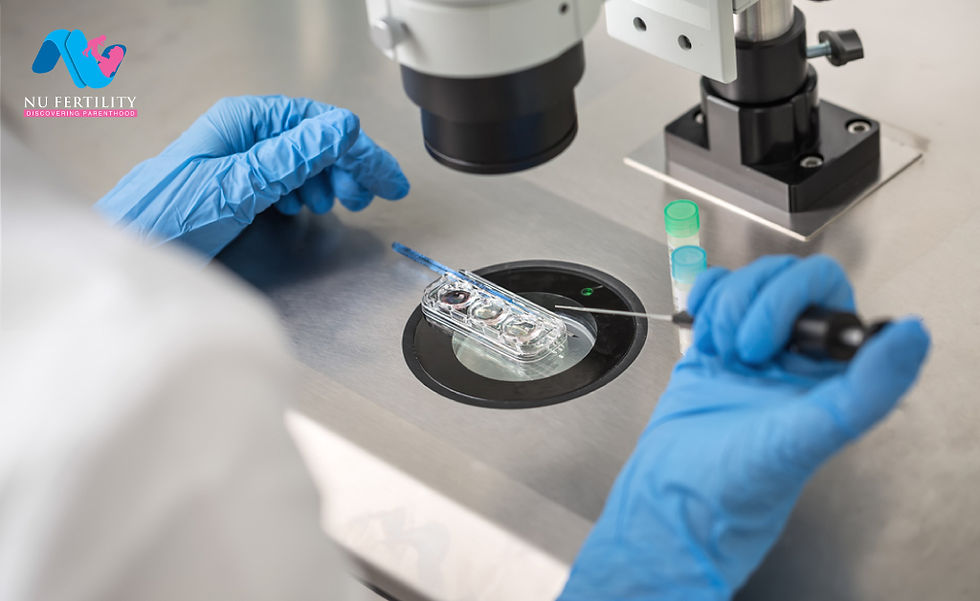In Vitro Fertilization - Procedure, Preparation & Risks
- Nu Fertility

- Sep 4, 2020
- 2 min read

There is a variety of assistive reproductive technology (ART), one of them is In Vitro Fertilization, more commonly known as IVF. Couple seeking fertility treatment or a way to conceive visit some of the top IVF centers in Bangalore for the treatment. In an IVF treatment, the eggs recovered from a woman’s ovaries and then they are fertilised with sperm. When the egg is fertilized, it’s called an embryo. The embryo can then either be frozen for storage and used later as per patients requirements or transferred to the woman’s uterus for implantation.
Why do people seek IVF
There are many individuals and couples who want to have a baby but due to lack of certain proper fertility, may not be able to conceive, IVF helps those people to have a baby. Because IVF is an expensive and invasive procedure, the IVF experts in IVF Specialist Hospital have couples try other fertility treatments first. The treatments may include taking medications for fertility or having intrauterine insemination (in this procedure, the doctor transfers sperm directly into a woman’s uterus).
IVF is recommended by the doctor if:
● The woman is 40-years and above and has reduced fertility
● Fallopian tubes damaged
● Reduced functions of ovaries
● Endometriosis
● Uterine fibroids
● The male partner has male infertility, like low sperm count or abnormalities in sperm shape
● Unexplained infertility
A couple may also prefer IVF if they want to avoid passing of a genetic disorder on to their baby. The expert doctors tend to take more than one egg for fertilization for the best chances and when they are in the embryo stage the doctors test them for genetic abnormalities. The doctor will only implant embryos without genetic defects that have the best chance for survival.
What is the procedure?
There are five steps involved in IVF:
Stimulation - fertility drugs to increase the production of numbers of eggs. The more, the better.
Egg retrieval - also known as follicular aspiration, where the doctor uses a needle to suction eggs through the vagina, into the ovary, and into an egg-containing follicle.
Insemination - sample of semen is taken and mixed with the eggs in a petri dish. In case this doesn’t produce desired results, the doctor may recommend ICSI (Intracytoplasmic Sperm Injection)
Embryo culture - the doctor observes the fertilized eggs to ensure that they’re dividing and developing
Transfer - once the embryos are big enough they are implanted, this usually happens three to five days after fertilization. In this process, a catheter is inserted into the vagina, past your cervix, and into your uterus where the embryos are released.
The couple will conceive only if the embryo implants itself securely to the uterine wall, which may from 6 to 10 days. The doctor may confirm the pregnancy with a blood test.
However, even the best IVF treatments in Bangalore may involve complications
● Multiple pregnancies which may sound like happy news but also increase the risk of low birth weight or a premature birth
● Miscarriage
● Ectopic pregnancy, the eggs gets implant outside the uterus
● Ovarian hyperstimulation syndrome (OHSS), a rare condition that involves an extra fluid in the abdomen and chest







Comments